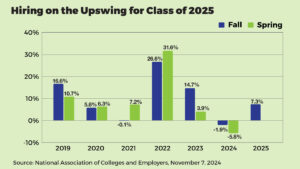
As the coronavirus has made its way around the world and has rapidly infected hundreds of thousands of people, we have been asked to stay at home and practice social distancing in an effort to “flatten the curve”. A tragic unintended consequence of social distancing, staying home, and shutting down many businesses is that millions of people have been laid off, gig economy workers aren’t able to find work, effectively becoming unemployed, and the economy is headed towards a recession.
In an attempt to lessen the blow to these individuals, and to the economy as a whole, Congress approved the massive $2 trillion Coronavirus Aid, Relief, and Economic Security (CARES) Act last Friday, March 27th, as a means to relieve the economic crisis caused by the coronavirus pandemic. The bill was then swiftly signed into law by President Trump on Friday afternoon.
Two trillion is a giant number. It’s really unfathomable once you begin trying to understand the scale. For example, one million seconds is equal to 12 days, one billion seconds is equal to 31 years, and one trillion seconds is 31,688 years. The market cap of Microsoft is $1.159T, Apple’s market cap is $1.098T, and Amazon’s is $954.287B. So, $1 trillion could buy every single share of Amazon’s stock and still have money leftover! For another sense of scale, check out this visualization for what $1 trillion of $100 bills would look like.
This article does not include every detail and provision of the bill, but it does provide information on those aspects that we believe will be the most relevant to our clients and their family and friends on an individual level. Please find our other CARES Act blog post here that dives into those provisions within the bill which are specifically meant to help small business owners and their employees.
Cash Payments to Americans
(2020 Recovery Rebates for Individuals)
Overview
Perhaps the most talked about piece of the CARES Act is the 2020 Recovery Rebates for Individuals provision, more informally known as cash payments to Americans. A large part of the bill to help those in this time of need is a credit against 2020 income taxes for individuals which will end up as direct cash payments to most Americans.
The simplest way to put it is that if you qualify for a rebate, you will receive a payment from the government now and will receive a tax credit for that amount when you file your 2020 tax return next year. This means that the money you receive won’t be taxable to you.
Details
Here are the more in-depth details and some circumstances to consider:
The Recovery Rebates to Individuals provision states that each eligible adult who has a Social Security Number (with a few exceptions) will receive one payment of $1,200 ($2,400 for joint filers) and $500 for each qualifying child (based on the Child Tax Credit definition) age 16 and under. However, these payments are limited to Adjusted Gross Income (AGI) phase-outs that are listed in the bill, as described below:
AGI Phase-Outs:
- Married Filing Jointly: $150,000 – $198,000
- Head of Household: $112,500 – $136,500
- Single (And All Other Filers): $75,000 – $99,000
For example, those who file their taxes as married filing jointly will receive 100% of the credit as long as they earn $150,000 or less. Effectively, for each $100 that you earn over the beginning of the phase-out limits, you will receive $5 less. These criteria will be based on the AGI of your most recently filed tax return (2018 or 2019), which you can find on line 8b of the 2019 1040 federal tax return or line 7 of your 2018 1040.
Considerations
Unfortunately, those whose incomes were high enough to be in the AGI phase-out ranges listed above in 2018 and 2019 but who now have substantially decreased incomes due to being laid off, furloughed, or another circumstance will not receive this benefit until they file their 2020 taxes next year. At that time, the AGI on their 2020 tax return will qualify them for the credit, thus reducing their tax liability by the appropriate amount. This obviously doesn’t help this group when it’s most needed in the short-term.
Timing of Tax Return Filing
The Recovery Rebate provision opens a few planning strategies for those who are in need of a stimulus check to help with cash flow while times are tough. Something to potentially consider is to delay filing your 2019 tax return if you need the check and your 2019 AGI will push you into a phase out range whereas your 2018 AGI was lower and was not within a phase-out range.
On the other hand, if your 2018 income would have phased you out from receiving a rebate, but your 2019 income was lower, then it may benefit you to go ahead and file your 2019 tax return as soon as possible. As of the time of this writing, there is no information available regarding a specific date that a 2019 tax return must be filed to be considered. Being owed a 2019 tax refund is another reason that filing sooner rather than later may make sense.
IRS Direct Deposit
Ensuring that you have direct deposit setup with the IRS when you file your tax return may help you receive your Recovery Rebate as soon as possible. This is most likely to be in the form of having direct deposit setup so that you could receive a tax refund from the IRS from your most recent tax return. Individuals receiving Social Security benefits should have their rebates deposited to the same account where they receive their Social Security benefits. Unfortunately, if you did not have direct deposit setup when you filed your last tax return, then your rebate check will be mailed to you and you’ll likely have to wait much longer to receive the funds.
Updated Address With The IRS
Those who do not have direct deposit setup with the IRS should consider making sure that their address is up-to-date with the agency so that payments will be sent to the correct place (here’s a link to do so: IRS Address Change). If you lived at a different address in 2018 and haven’t filed your 2019 tax return yet, then there’s a chance that your check could be sent to your old address.
You do not have to do anything to receive this payment and there are already scammers preying on those who are less informed. Please do not provide information to anyone who contacts you regarding your stimulus check payment and please let those around you know about these scams.
(Here’s a link from the Cybersecurity and Infrastructure Security Agency (CISA, a division of Homeland Security) regarding COVID-19 cyber scams.)
Mortgage Forbearance
While many lenders have been willing to work with mortgage holders to discontinue their payments for the time being and add them onto the end of the loan, there is a provision within the relief package specifically regarding forbearance for Federally backed mortgage loans. This provision within the bill states that Federally backed loans (e.g. FHA, Freddie Mac, Fannie Mae, VA) are eligible for a 12-month forbearance which begins with a 180-day waiver that can be extended, if needed. Borrowers must submit a request to their loan servicer and attest that they’re experiencing financial hardship due to COVID-19 in order to receive a forbearance.
Student Loans & Education Relief
The CARES Act also includes a provision to automatically suspend involuntary collection of Federal student loan payments (that are held by the Department of Education) through 9/30/2020. The bill lists involuntary collections as wage garnishments, tax refund garnishments, and reduction of any other Federal benefit payment.
This provision provides many positives for student loan borrowers including that interest will not accrue during this time, involuntary collections will be suspended, and suspended months will count towards the loan forgiveness programs.
(Please note that voluntary payments may not be suspended and that you will likely be responsible for being proactive about suspending any automatic payments, if you need to. Please check with your student loan servicer to confirm how they will be proceeding.)
There has been information countering the point that suspended months will count towards loan forgiveness programs on different student loan websites. However, part (c) of Section 3513 of the CARES Act states the following:
“(c) Consideration Of Payments.—Notwithstanding any other provision of the Higher Education Act of 1965 (20 U.S.C. 1001 et seq.), the Secretary shall deem each month for which a loan payment was suspended under this section as if the borrower of the loan had made a payment for the purpose of any loan forgiveness program or loan rehabilitation program authorized under part D or B of title IV of the Higher Education Act of 1965 (20 U.S.C. 1087a et seq.; 1071 et seq.) for which the borrower would have otherwise qualified.”
It may be prudent to contact your student loan servicer if you are receiving conflicting information.
This last point could prove to be very helpful for those who work for qualified nonprofit organizations and are planning on taking advantage of Public Service Loan Forgiveness. Based on this information, those individuals now have the opportunity to quit making student loan payments until October which will increase their cash flow flexibility in the short-term while also incrementally increasing the amount of student loans that they could eventually have forgiven.
In addition to the student loan benefits that are included in the bill, there are other education-related benefits to help individuals. This semester will be excluded from the lifetime limit on Federally subsidized student loans and Pell grants, if students are forced to discontinue the semester due to COVID-19. Additionally, employers may pay up to $5,250 of student loan debt for employees without inclusion in employees’ income for 2020 only.
Unemployment Benefits & Pandemic Unemployment Insurance
Unemployment benefits have also seen many enhancements thanks to the CARES Act. Chief among these are:
- Benefits are extended to self-employed 1099 income earners (who are usually not eligible for unemployment benefits) through Pandemic Unemployment Insurance
- The length of benefits is extended by 13 weeks (to a total of 39 weeks in Indiana)
- An additional $600 per week for up to 4 months is provided for eligible workers on top of state unemployment benefits
- Waiting periods (typically a week) are eliminated under the CARES ACT and the Federal government will cover the first week of benefits
(If you need more information about Indiana unemployment benefits, then you can check out the Indiana Department of Workforce Development Unemployment Insurance Claimant Handbook and the Indiana Department of Workforce Development Unemployment Insurance FAQ page.)
These enhanced benefits are available to those who were newly eligible for unemployment benefits beginning January 27, 2020 through December 31, 2020.
Qualified Medical Expenses Definition Expanded for HSAs and FSAs & Other Health Benefits
Qualified medical expenses eligible to be paid and/or reimbursed from Health Savings Accounts (HSAs) and Healthcare Flexible Spending Accounts (FSAs), and Health Reimbursement Arrangements (HRAs) have been expanded to include over-the-counter medications as well as menstrual care products.
In addition to this, telehealth services are receiving enhanced support, Medicare Part B will provide the COVID-19 vaccine (when available) at no cost, and Medicare Part D recipients must be given the option to obtain up to a 90-day supply of a covered Part D drug.
For those who are concerned about the cost of coronavirus testing, the bill states that COVID-19 tests must be covered by insurance. Additionally, once a vaccine becomes available, it is required to be covered by health insurance as well.
$300 Deduction for Qualified Charitable Contributions
An above-the-line charitable deduction for contributions of up to $300 has also been included within the bill. While $300 may not be a large amount to some, this piece of the bill could impact very many American taxpayers. According to the Tax Policy Center, the increased standard deductions provided by the 2017 Tax Cuts and Jobs Act reduced the amount of taxpayers who itemize their deductions to about 10%. The inclusion of the $300 above-the-line deduction for charitable contributions within the coronavirus relief package means that the 90% of people who do not itemize would now have an extra incentive to contribute to charity.
Of course, there are a few limitations to this provision in that the contribution must be in cash and cannot be contributed to a donor-advised fund.
Required Minimum Distributions (RMDs)
All RMDs required to be taken in 2020 are waived for IRAs and employer-sponsored retirement plans including 401(k) plans, 403(b) plans, and 457(b) plans under the CARES Act. Please note that this not only applies to 2020 RMDs, but it also applies to RMDs for those who turned age 70 ½ in 2019, but delayed their RMD until 2020.
This provision brings up the consideration of returning RMDs that have already been taken in 2020. However, this will not be an option for beneficiaries who have already taken RMDs from inherited accounts. Please contact your Financial Planner if this is something that you’re interested in exploring.
Exception to 10% Early Withdrawal Penalty (Coronavirus-Related Distributions)
The CARES Act also provides a new Coronavirus-Related Distribution exception to the 10% early distribution penalty from a qualified retirement account for individuals under the age pf 59 ½, which is available to individuals impacted by the coronavirus. These distributions also will not be subject to mandatory tax withholdings from employer-sponsored retirement plans. Income taxation of Coronavirus-Related Distributions will be defaulted to be spread over 3 years, unless you proactively elect to include all tax in 2020.
Distributions from an IRA or qualified retirement plan up to $100,000 taken in 2020 by someone who has been affected by the coronavirus will be eligible for the exception. Eligible individuals are those who:
- Have been diagnosed with COVID-19
- Have a spouse or dependent who has been diagnosed with COVID-19
- Experience adverse financial consequences as a result of being quarantined, furloughed, being laid off, or having work hours reduced because of the disease
- Are unable to work because they lack childcare as a result of the disease
- Own a business that has closed or operate under reduced hours because of the disease
- Meet another reason deemed eligible by the Secretary of the Treasury
(Section 2202)
Individuals may contribute all or any portion of a Coronavirus-Related Distribution back into a retirement account within the 3-year period beginning on the day after they receive the distribution. If distributions are contributed back into the retirement account under this provision, then the taxpayer can file an amended tax return to claim a refund on taxes paid attributable to the amount that was rolled back into the account.
Employer-Sponsored Retirement Plan Loans
Many qualified employer-sponsored retirement plans offer the option to participants who have vested account balances of $20,000 or greater to take a loan for the lesser of up to $50,000 or 50% of their account balance, while the CARES Act doubles this amount to $100,000 or 100% of the account balance for those affected by the coronavirus. Payments that the retirement plan sponsor would typically require on the loan in 2020 may be delayed for up to a year.
Please contact your Financial Planner if you have any questions about the provisions within the CARES Act or if you would like help exploring how they may be applicable to you.
Sources:
Analyzing The CARES Act: From Rebate Checks To Small Business Relief For The Coronavirus Pandemic. Levine, Jeffrey. https://www.kitces.com/blog/analyzing-the-cares-act-from-rebate-checks-to-small-business-relief-for-the-coronavirus-pandemic
H.R. 748 – 116th Congress (2019-2020): CARES Act. Courtney, Joe. https://www.congress.gov/bill/116th-congress/house-bill/748/text
S.3548 – 116th Congress (2019-2020): CARES Act. McConnell, Mitch. https://www.congress.gov/bill/116th-congress/senate-bill/3548/text
<div class=”







